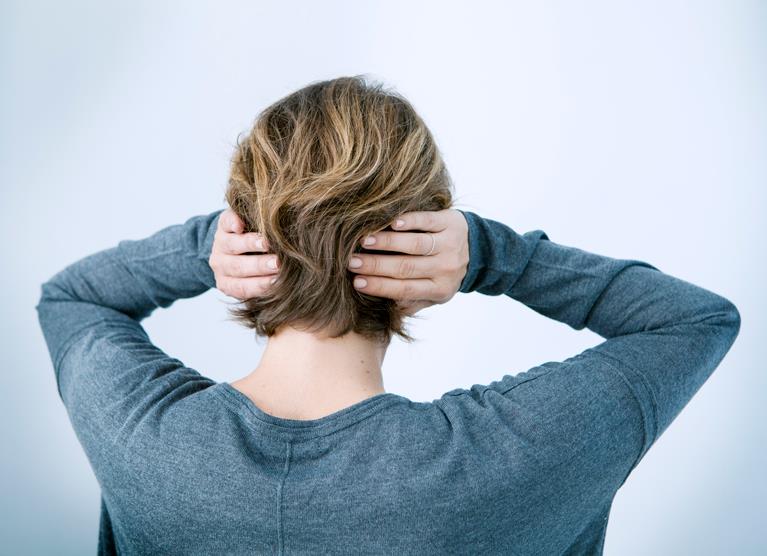Are You Hearing Your Heartbeat In Your Ear?
Have you ever heard a rhythmic thumping, whooshing, or pulsing sound in your ear—especially when lying down? You're not imagining it. Hearing your heartbeat in your ear is more common than you might think, and it could be related to a condition called pulsatile tinnitus.
According to the American Tinnitus Association, more than 50 million Americans experience some form of tinnitus, making it one of the most common hearing-related issues in the United States.
Why Do I Hear My Heartbeat in My Ears?
Hearing your own heartbeat in your ears is often a symptom of pulsatile tinnitus. Unlike regular tinnitus—which may sound like ringing, buzzing, or hissing—pulsatile tinnitus presents as a rhythmic beat that follows the pulse of your heart.
This happens when something changes the blood flow near your ear. Your auditory system detects the flow of blood in nearby vessels, which your brain may interpret as sound.

What Causes Hearing Your Own Heartbeat?
Several underlying conditions can trigger pulsatile tinnitus. Common causes include:
- High blood pressure: Increased blood pressure can amplify the sound of blood flow in vessels near the ear.
- Ear infections or fluid buildup: Inflammation or fluid in the middle ear can enhance internal sounds.
- Earwax blockage: Excess earwax can amplify internal body sounds, including your pulse.
- Eustachian tube dysfunction: This tube helps equalize pressure; when it’s blocked, pressure builds up and sound becomes distorted.
- Vascular malformations: Abnormal blood vessels near the ear or skull can cause audible blood flow.
- Ototoxic medications: Certain drugs list tinnitus as a potential side effect.
If you're also experiencing muffled hearing in one ear or dizziness, it may signal a deeper issue that needs attention.
Is Hearing a Pulse in Your Ear Normal?
Not necessarily. While temporary pulsatile tinnitus can happen after exercise or stress, hearing a persistent heartbeat sound—especially in one ear—warrants a closer look.
If it's ongoing, or if it's paired with other symptoms like ear pain, hearing loss, or headaches, contact your healthcare provider. Swishing sounds in the ear may also indicate similar vascular or pressure-related issues.
Why Does It Happen More at Night or When Lying Down?
At night, external sounds diminish, and your brain becomes more attuned to internal noises. Lying down also changes how blood flows through your head and neck, increasing the volume of pulsations near your ear.
If you mostly hear the pulsing while resting, fluid in your middle ear, sinus pressure, or congestion could be to blame.
Can Stress or Anxiety Make You Hear Your Heartbeat?
Yes. Stress and anxiety can elevate blood pressure and heart rate, increasing the intensity of pulsatile tinnitus. Muscle tension around the neck and jaw may also restrict blood flow, further contributing to the sensation.
If you've noticed that the sound worsens with stress, relaxation techniques like breathing exercises, meditation, or counseling may help reduce both the physical and emotional impact.
When Should I See a Doctor for Heartbeat in My Ears?
Schedule a medical or hearing evaluation if you experience any of the following:
- Pulsing in one ear only
- Sensation of fullness or ear pressure
- Sudden or severe changes in hearing
- Headache, dizziness, or visual disturbances
- Symptoms that worsen after starting new medication
Persistent or one-sided pulsatile tinnitus may indicate a vascular, neurological, or auditory issue that needs diagnosis and treatment.
How Is Pulsatile Tinnitus Diagnosed?
Diagnosis may include a physical exam, blood pressure screening, hearing test, and imaging (like an MRI or CT scan) to rule out underlying vascular abnormalities or infections.
Hearing care professionals can also assess whether your symptoms stem from hearing loss. Book a free hearing screening* to take the next step toward relief.
How Can Pulsatile Tinnitus Be Treated?
Treatment depends on the cause. Options may include:
- Managing blood pressure: Medication and lifestyle changes can help.
- Treating infections or fluid buildup: Antibiotics or decongestants may provide relief.
- Removing earwax: A hearing professional can clear obstructions safely.
- Discontinuing ototoxic drugs: Your doctor may adjust medications if needed.
- Using hearing aids: If hearing loss is present, hearing aids can reduce the perception of internal sounds by amplifying external noise.
Beltone hearing aids can also include tinnitus masking technology—custom sound therapy programs designed to make tinnitus less noticeable.

Living with Tinnitus: What Else Can Help?
For some, tinnitus may continue even after addressing the underlying cause. Coping strategies may include:
- Mindfulness and meditation: Reduce your focus on the sound and ease anxiety.
- Sound therapy: Soft background noise or white noise machines can help mask symptoms.
- Cognitive behavioral therapy (CBT): Shown to reduce distress caused by tinnitus.
If tinnitus is affecting your sleep, concentration, or emotional well-being, connect with a hearing care professional for evaluation.
Take the Next Step
Hearing your heartbeat in your ear may be harmless—or it may be your body’s way of alerting you to something more serious. Either way, don’t ignore the signs. A hearing evaluation is an easy first step toward answers and relief.
Schedule a free hearing screening* today with a licensed Beltone provider to get the support and guidance you need.

Take Online Hearing Test
Take our free at-home hearing loss test as a first step on your journey to better hearing.


